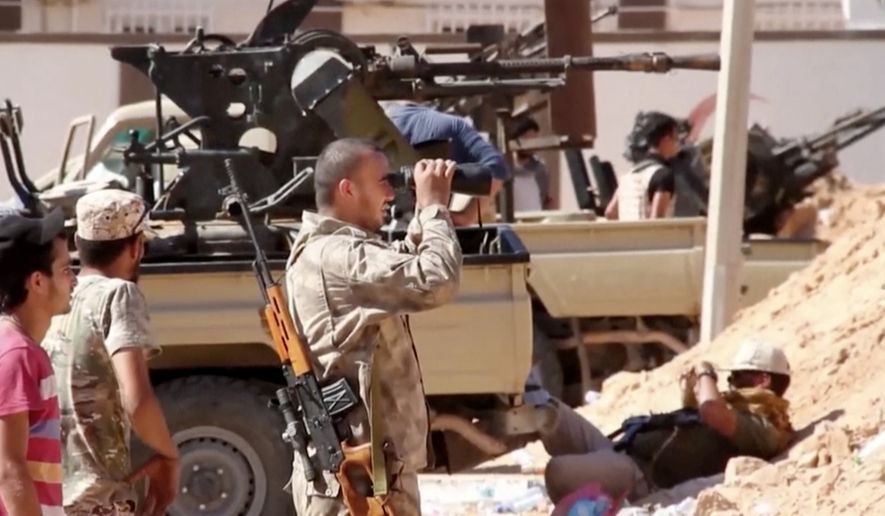The State Department’s point man on Libya told lawmakers Wednesday the U.S. is playing a critical role in gathering support for the U.N.-backed unity government in Tripoli as it takes the fight to Islamic State forces operating in the country.
Jonathan Winer, the State Department’s Special Envoy to Libya, testified before the Senate Committee on Foreign Relations just as the Libyan government claimed it was close to ousting Islamic State from its stronghold in the oil-producing region centered on the port city of Sirte. But he said the factions jockeying for power in the Libyan government have to come together if the gains are to last.
“With our partners in Europe and within the region, we continue to urge all Libyans to put aside their personal interests in the name of uniting Libya under the [Government of National Accord] so Libyans throughout the country — east, west and south — can rebuild their nation,” said Mr. Winer.
Mr. Winer told lawmakers Wednesday that “Libyans will look to the United States for our help in combating [Islamic State], and we are prepared to provide it.”
The Obama administration has requested $20.5 million from Congress that would enable U.S. special forces to help to “respond to Libya’s emerging needs, help the GNA function as an inclusive and rights-respecting national government and support increasing Libya’s security and counterterrorism capabilities.”
Libya has struggled to re-establish a central authority since the U.S.-backed campaign in October 2011 killed longtime dictator Moammar Gadhafi, who was born in the area just outside Sirte. As rival governments fought for control, Islamic State, also known as ISIS or ISIL, exploited the power vacuum to occupy Sirte, its largest holding outside of its base in Syria and Iraq.
Mr. Winer said that the successes of the past week have been impressive, but claimed the fight against terrorism in Libya is far from over. Islamic State forces have tried to organize a counterattack, but the envoy said the geographical and financial control that Islamic State once had in the area have markedly declined.
The head of Libya’s two-month-old U.N.-backed unity government, Prime Minister-designate Fayez al-Sarraj, recently urged Libyans to rally behind forces battling to retake Sirte, telling the Agence France-Presse news service that he believed “the operation would not last much longer.”
It was only two months ago when American and Libyan experts warned that Islamic State had expanded its control in Libya, possibly up to 6,000 fighters, and was even posing a threat to neighboring nations such as Tunisia. However, the recent battlefield gains have led some analysts to believe that Islamic State’s strength in Sirte has been exaggerated.
The U.S., France and Britain currently each have special forces stationed in Libya offering intelligence by advising armed groups that oppose the Islamic State.
Mr. Winer said the Obama administration also is continuing its push to build more support for the shaky new government in Tripoli, both inside Libya and through other states in the region.
He said that the U.S. must “operate in a transitional way to unite Libya and bring them together to enable Libya to build a state that functions on behalf of its people.”
• Erica Brosnan can be reached at ebrosnan@washingtontimes.com.




Please read our comment policy before commenting.